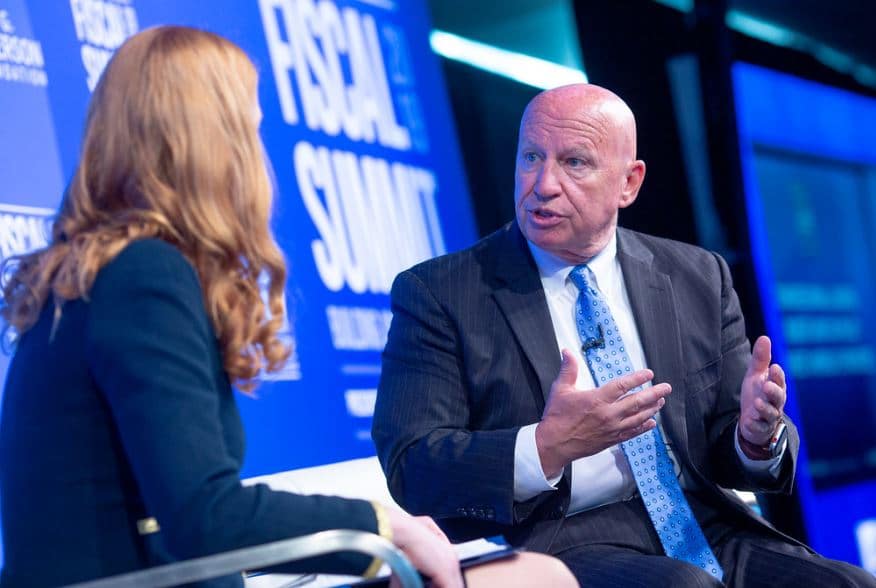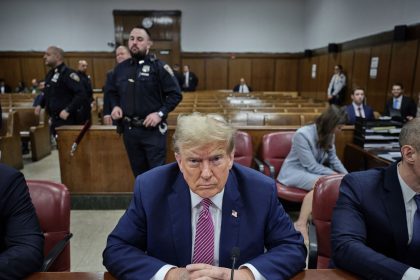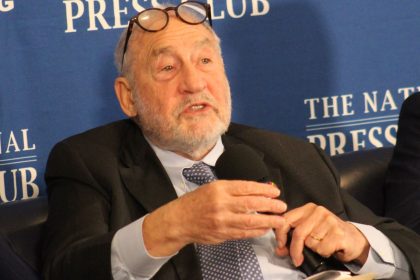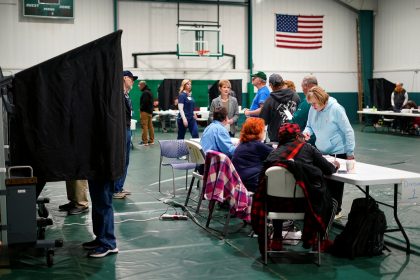Brady Concedes Uncertainty Over Whether Republican Tax Cuts Will Pay for Themselves

WASHINGTON – Representative Kevin Brady, R-Texas, one of the principal architects of the 2017 Republican tax cuts, conceded Tuesday that assurances the cuts would pay for themselves may not pan out in exactly the way the GOP promises.
“It’s so hard to know,” Brady said when asked to what extent the tax cuts will pay for themselves during the Peter G. Peterson Foundation’s annual Fiscal Summit in Washington, D.C.
“We will know in year eight, nine or 10 what revenues it brought into the government over time. It’s just way too early to tell,” the congressman said during a lively Q&A with the Washington Post’s Heather Long.
Brady’s statements contradicted a longtime Republican talking point. Perhaps sensing as much, he quickly switched gears, saying what he closely watches is the government reports on payroll taxes “because that means people are going back to work.”
The representative then questioned the very question Long posed.
“It should be a just a question of do the tax cuts pay for themselves, but do they pay off? Are they good investments?” Brady said. “To me, the early signs are very encouraging … in terms of job growth, wage growth, the amount of foreign investment coming into the U.S., the growth of the manufacturing sector.”
“What’s happened is we’ve traded a sucking sound of all these things moving away from the U.S., to the sucking sound of them coming back,” he said.
Most Signs Point to Slowing Economy
Most recent economic reports from the government do not support Brady’s optimism.
Earlier this month, the U.S. Bureau of Labor Statistics reported that employers across America created only 75,000 new jobs in May, far below the 223,000 jobs added in April.
In addition, while the unemployment rate remains at 3.6 percent — the lowest figure in half a century — wages continue to stagnate, with workers seeing an average hourly pay raise of only six cents, or 0.2 percent, in May, the same as in April.
Over the last 12 months, average hourly wages have grown by only 3.1 percent. With an annual inflation rate of two percent, the increase in real wages for US workers over the past year is a mere 1.1 percent.
As for manufacturing, the same Bureau of Labor Statistics report found that U.S. factories hired only 3,000 more workers in May, down from 4,000 in April, and down from the average of 15,300 new manufacturing jobs added per month last year.
Where Brady was more direct was in the area of foreign direct investment. According to a United Nations Conference on Trade and Development report released Wednesday, the U.S. continues to be the world’s largest recipient of foreign direct investment, while investment in other nations has declined sharply.
Tax Cut, Plus Interest, Will Add $2 Trillion To Deficit
The report attributes the contraction to U.S. multinationals repatriating earnings from abroad to take advantage of the 2017 tax breaks.
“My point is, I don’t think anything could have been worse for the deficit that to stick with old economy and a tax code that was so outdated that it was actually pushing jobs away from us,” Brady told the large crowd of Fiscal Summit attendees assembled on the 7th floor of the Newseum.
Again, Brady’s statement was off the mark. Under President Trump, the federal deficit has actually ballooned. According to the Congressional Budget Office, the deficit stands at $738 billion for the first eight months of fiscal year 2019, $206 billion more than the deficit recorded during the same period last year.
Revenues were $49 billion higher and outlays were $255 billion higher than during the first eight months of 2018, the CBO said.
The nonpartisan agency has also estimated that the 2017 tax cut will ultimately cost $2 trillion when interest is factored in, and that only about a fifth of that cost will be borne by stronger economic growth.
“I think it’s smart to let it play out,” Brady said. “I mean, what we do know is that under the old tax policy, what we were telling companies was, ‘For heaven’s sake, don’t invest in the U.S.’ and if you happen to make a profit somewhere else, don’t bring it back to the U.S., because we’ll punish you if you do that.
“The tax reform area is something I think will pay off more over time. I still think the best is yet to come,” he said.
Fiscal Realities Being Obscured
In his welcoming remarks to attendees, Michael A. Peterson, CEO of the Peter G. Peterson Foundation, said the United States faces complex interconnected challenges including rising inequality, unaffordable health care, altering infrastructure, a changing climate, failing education, and unpredictable security threats.
“To address these challenges, we will need significant resources. And in this way fiscal sustainability is critical to meeting our greatest challenges. … The problem is that while these issues and concerns are rising, our fiscal condition and ability to address them are falling,” he said.
“We have historically high debt and deficits. Right now the national debt is at 22 trillion and rising. Soon we will turn to trillion dollar annual deficits, which will then grow indefinitely at 78% of GDP,” Peterson continued. “That debt is already at its highest point since just after World War II on track to grow to more than 200% of GDP in coming decades.”
Even more staggering, in Peterson’s view, is that within the next six years, the federal government will spend more on interest payments than it does on national defense.
“Whether you’re a conservative or progressive, having high debt hurts the ability to address your priorities,” he said. “Unfortunately, these fiscal realities are being obscured and the current conversation, this core responsibilities being cast aside demote it to a low priority by some policymakers in the Congress.
“This emerging view is some combination of unrealistic, wishful thinking and political procrastination,” he added. “It’s much easier to presume rosie scenarios for economic growth. Rather than grapple with the complex implications of low growth and high debt. From a political perspective, you can make a policy much more appealing if there’s no tradeoff required. All gain and no pain sure sounds better.”
But Peterson went on to call the current path the nation is on “an injustice” to the next generation.
“It’s a form of fiscal corruption, making the easy choices today at the expense of the future and it needs to stop,” he said.
A Need to ‘Think Fresh’
Asked by the Post’s Long what percentage of debt to GDP would be truly worrying, Brady said he didn’t know.
“It’s a great question … and I think it’s sooner than we think it is,” he said.
The reality, he said, is that if Washington was a manufacturing plant, “we’d be a manufacturer of spending. That’s what we’re designed to do.
“If we want to manufacturer savings efficiency, we’re going to have to retool the plan,” he added. “We’ve got to think fresh about how we do things.”
Brady recalled how for a number of years he advocated for legislation he called the Maximizing America’s Prosperity Act. Had it ever been adopted, it would have capped both discretionary and entitlement federal spending as a percentage of potential GDP.
Eventually, the plan was to reduce the cap to 16 percent of potential GDP over a ten year period.
“I thought of it as budget caps with guardrails around spending,” he said. “There’d be no sacred cows, and spending would increase and decrease in step with whether the economy was going up and down.
“I’d love to have a conversation with serious members [of Congress] about a smarter way to do this,” Brady said.
























